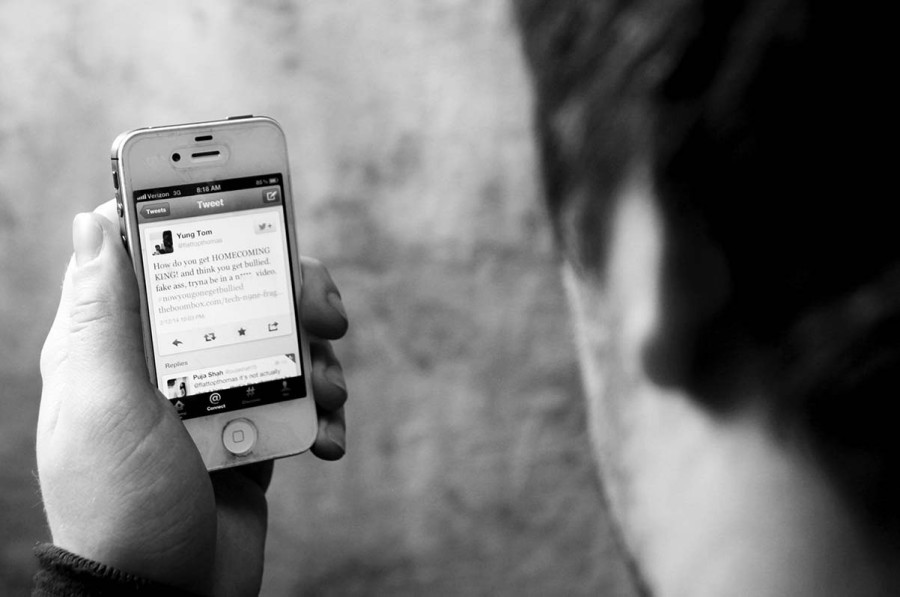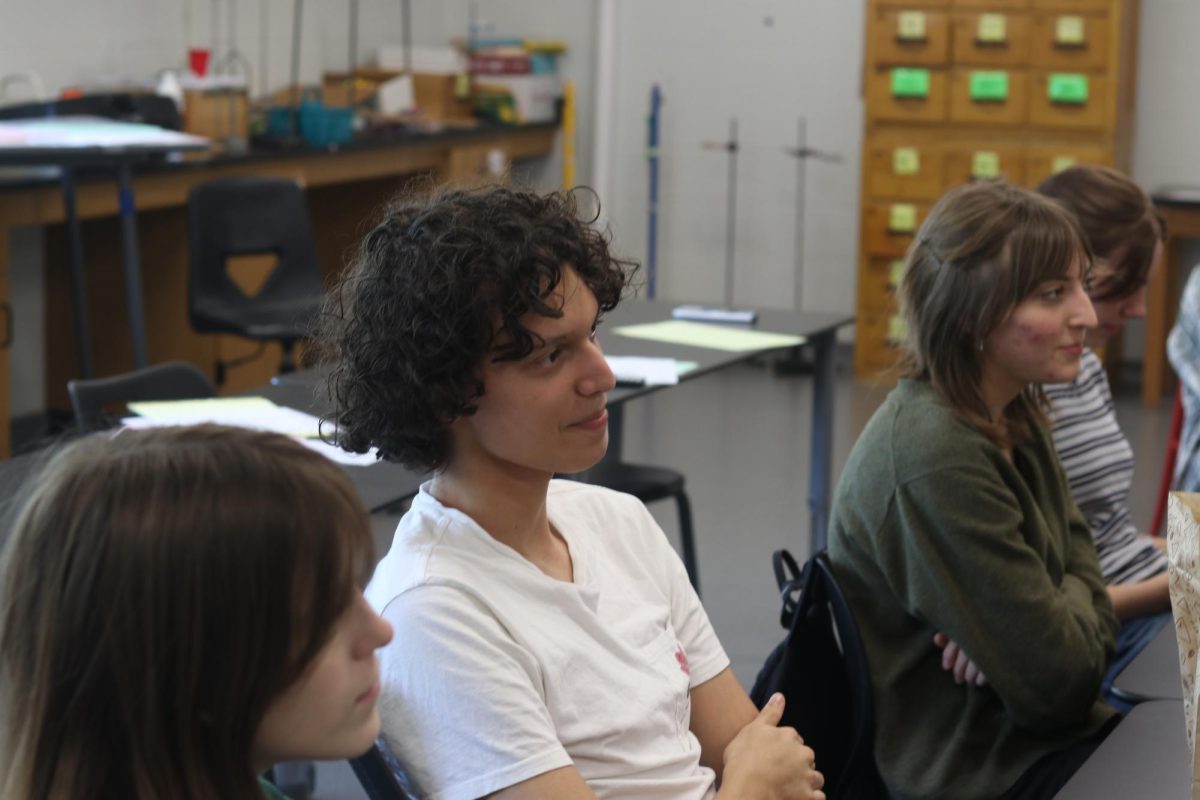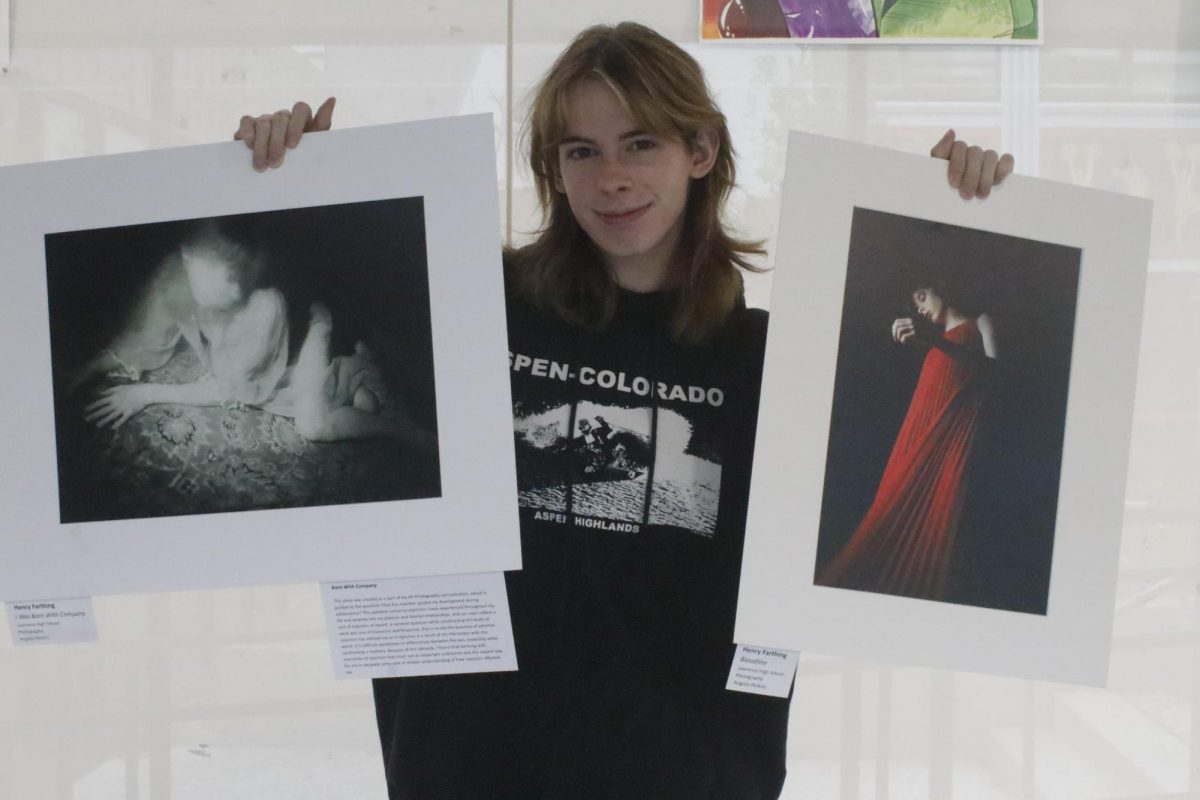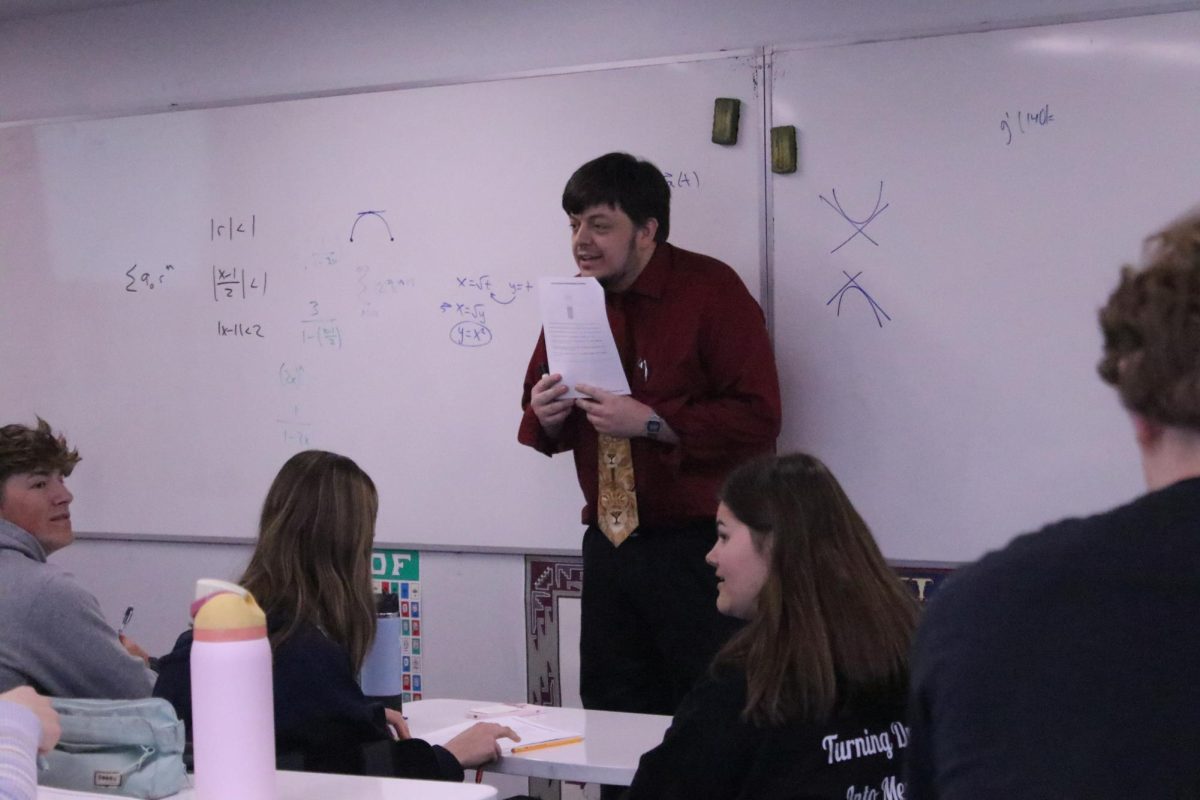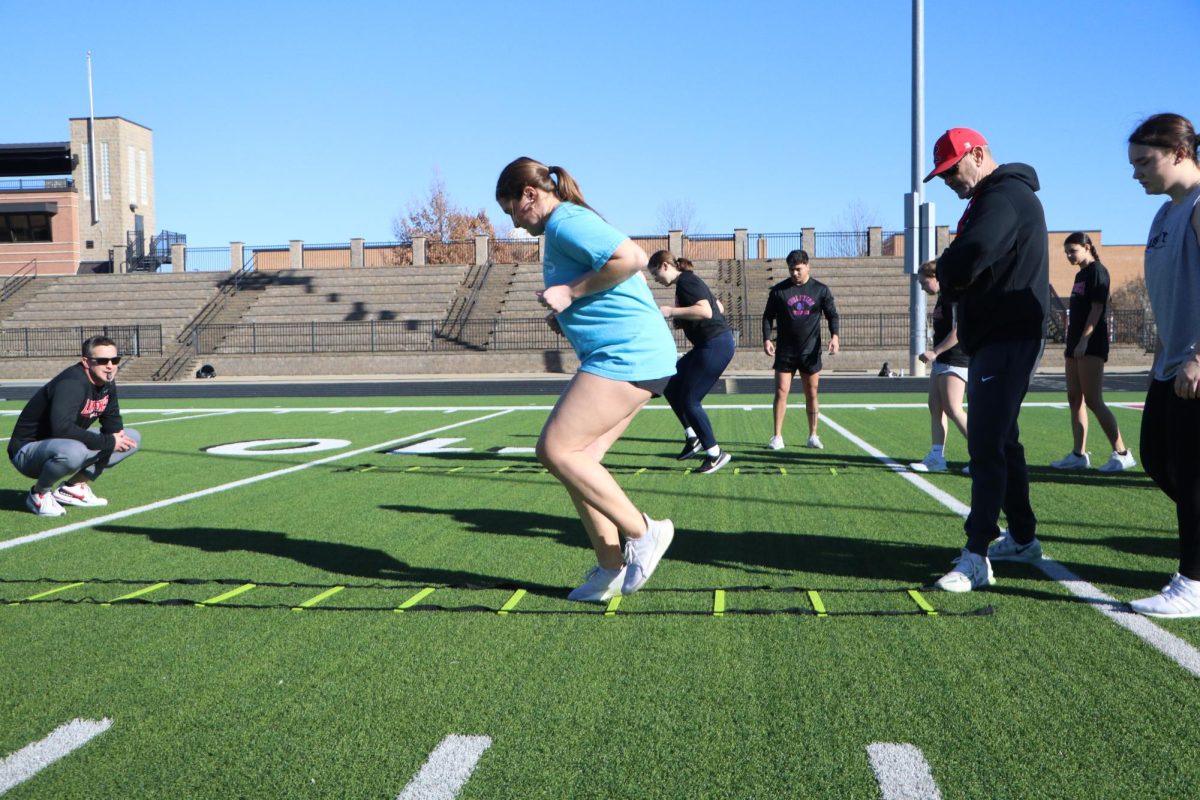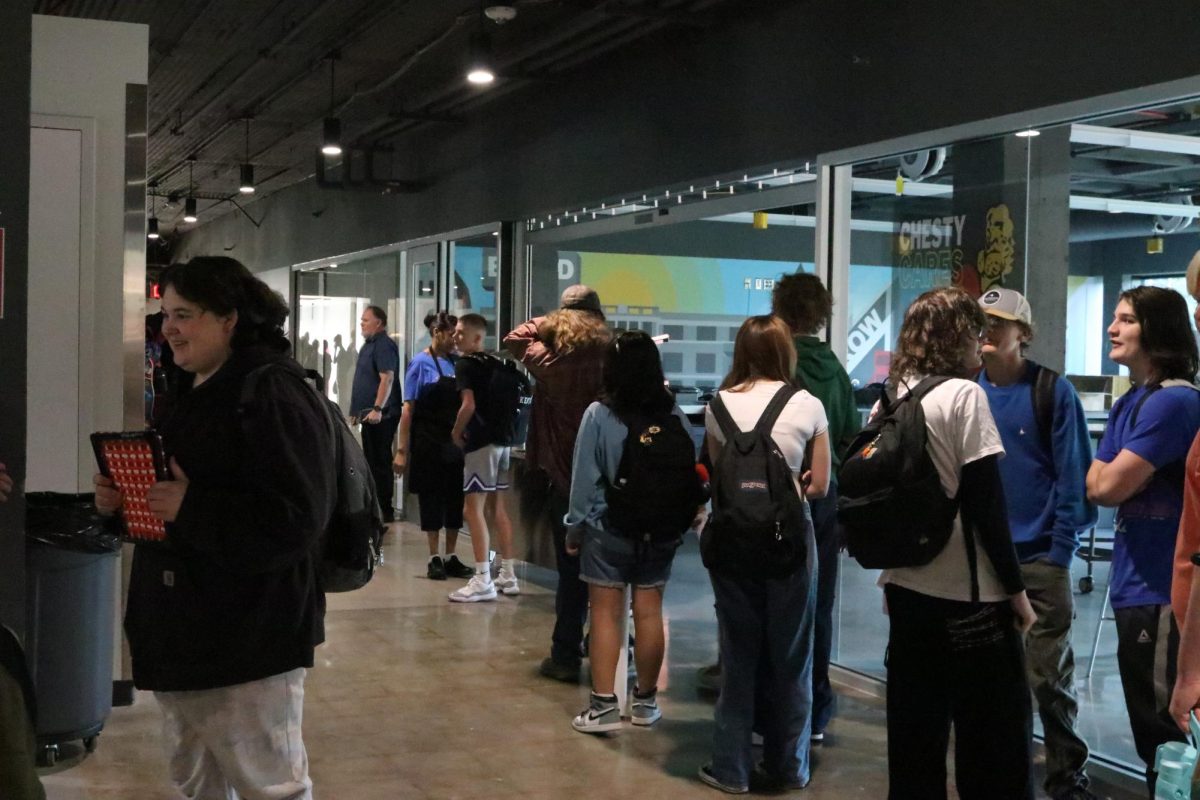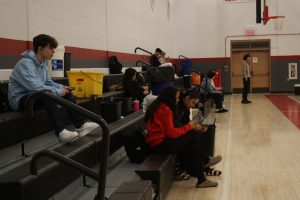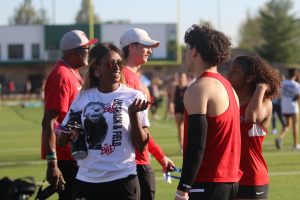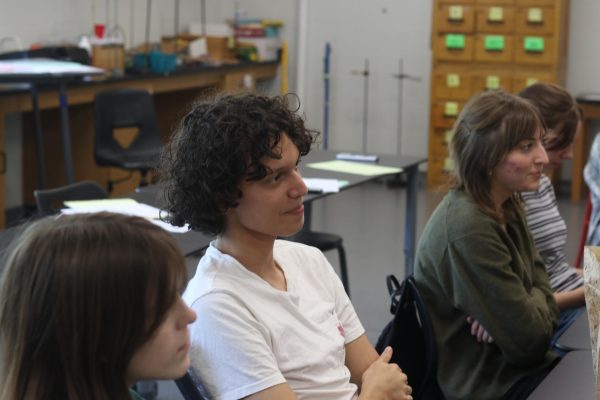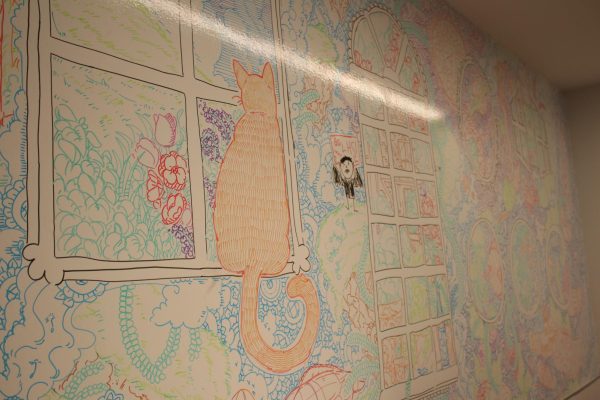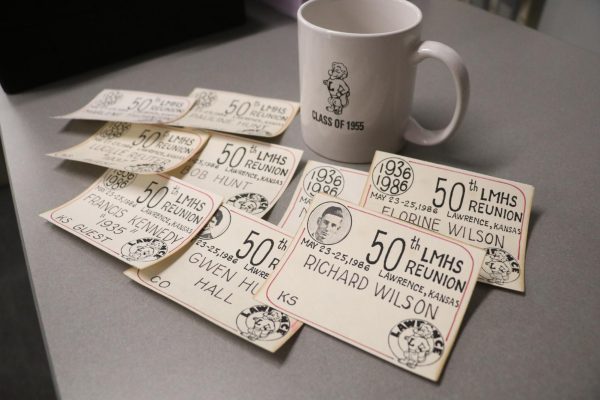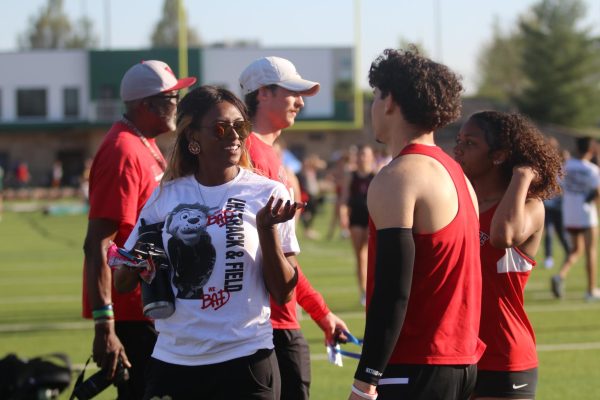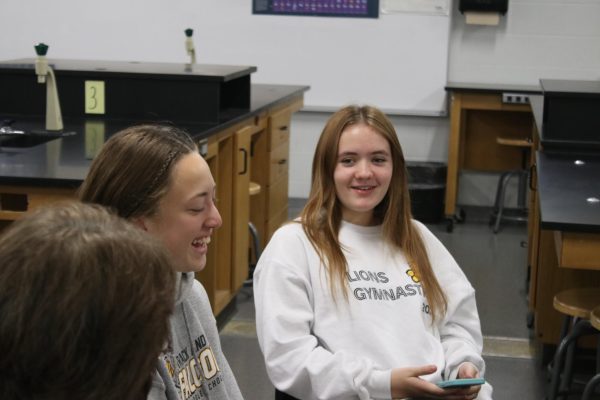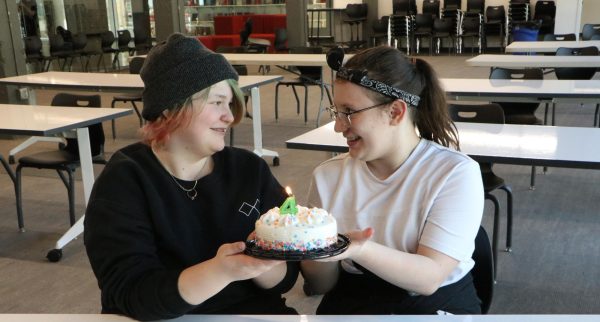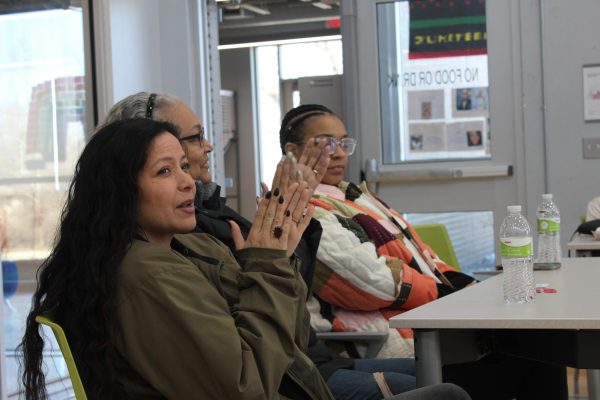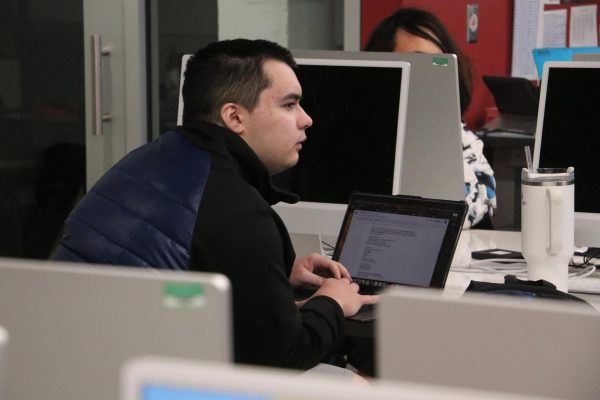Twitter parallels debate in KS Legislature
Bill fails to go ahead as religion-based fight about LGBT rights ensues on Twittersphere
Looking at the initial tweet that sparked debate, a student reflects on the Feb. 13 conversation.
March 12, 2014
Photo illustration by Kendra Schwartz
By Kendra Schwartz
In matter of seconds and in only 140 characters, one tweet on social media launched the Twittersphere into debate and then spread like a virus.
Late Feb. 13, discussion of Lesbian, Gay, Bisexual and Transgender (LGBT) rights cluttered students’ Twitter feeds. A tweet by a recent graduate denouncing homecoming king, senior Matt Rood, set many students aflame.
This debate mirrored that of Kansas legislators, who similarly discussed what role religion plays in the rights of LGBT individuals.
The former student’s tweets began by referencing the music video for Tech N9ne and Kendrick Lamar’s “Fragile” in which Rood played a character who was profusely bullied. The individual rejected the notion of Rood having ever been bullied because Rood had been crowned homecoming king in September and went on to say being gay is a sin.
Senior Matt Carmody joined the debate when he noted what he believed to be a misinterpretation of the Bible.
“I just think that everyone is bound to their own opinion, and if it’s belittling to someone then you should keep it off of Twitter,” Carmody said.
Quickly, discourse became centered around the theological views of the individuals who were tweeting.
“I think religion can play positively and poorly,” Carmody said. “I think it can be taken too far by someone who is a Christian and who tries to force their opinion on other people. I also believe people can take the Bible out of context and cause arguments.”
Senior Jacob Nation decided to get involved and guide the discussion away from religion and toward human rights.
“I just saw what was happening, and I felt like I just wanted to voice my opinions since everyone else was,” Nation said.
However, the more religious individuals kept the Twitter disagreement centered around their differing interpretations of biblical scriptures.
Although the former student did not speak directly to Rood the night of Feb. 13, his condemnation of the actions of Rood and of other openly gay students caused many individuals to step in on Rood’s behalf.
“I don’t want to say it’s OK from my religious standpoint, but I want to say that none of us have the right to judge, not specifically Matt, but people everywhere who make that choice,” Carmody said. “And I don’t know that it’s a choice, but those who have the decision to be gay, we can’t judge them because we all have our own sins and flaws.”
Although Rood had missed the Twitter quarrel to have an early Valentine’s Day celebration with his boyfriend, the argument was brought to his attention the following day.
“My first gut reaction was I was really thankful to all the members of choir and the school who immediately stepped up and were like, ‘No that’s not right,’” Rood said. “And I was like, that’s really cool that so many people are actively trying to end discrimination instead of just like being like, ‘Nah. I’m for it, but not gonna do anything about it.’”
Some believe social media to be the appropriate forum for religious debate, but others are concerned about the potential for cyber bullying in this debate.
“You can easily be attacked through social media and then never see that person in real life,” Nation said. “You can easily gang up on someone over the internet.”
While the online debate extended only a few hours, the LGBT rights dialogue has continued for years, especially in Kansas.
On Feb. 12, the Kansas House passed a bill that would have allowed religious individuals, groups and businesses to deny services specifically to same-sex couples. Although the House passed the bill 72 to 49, The bill was met with quick dissent and wasn’t taken up by the Senate.
Although sophomore Hanna Hall was not involved in the debate over Twitter, her strong beliefs have prompted her to become a loyal member of the Gay-Straight Alliance at LHS.
“To be honest, when I first heard about [the bill], I was infuriated and literally felt sick to my stomach,” Hall said. “I felt that this is us taking steps back and that it wasn’t fair. It was basically like segregation again. And I felt, even though I didn’t live through the original [racial] segregation, that it shouldn’t be happening again. We should’ve learned from our past experiences.”
Though Rood is no longer bullied as regularly as his character in “Fragile,” school was not always safe space for him.
“I mean, it’s a character and I’m an actor,” Rood said. “I got bullied in early elementary school when I rode the bus, but I’m not bullied here at LHS. I was an actor in that video and I wasn’t trying to pretend I was; I was just doing my job, which I get paid for.”
And while bullying based on sexual orientation is a rarity at LHS, this bullying is customary and inevitable elsewhere.
“I wish there was something I could do,” Hall said. “However, I’m 15 years old and as much as I want to help, I may not be able to help. Especially since people who get bullied feel like they cannot come and speak to other people. They feel like that puts them in a more vulnerable situation.”
Whether students want to be a part of the debate or to avoid it completely, religion will always be central to the beliefs of many.
“Our country is founded on very Puritan beliefs,” Rood said. “And we’ve always been a religiously-affiliated country. I mean, we pride ourselves on freedom of religion, but there’s a lot individuals who would want to be more [free to practice their religion].”
Although religion and gay marriage aren’t always interconnected, this bill provided more concrete proof of the overlap that exists in the eyes of some Kansas lawmakers.
“I feel like religion has its own stigma that people assume all religions are against homosexuality or anything like that,” Hall said. “However, I don’t exactly think that’s true. It’s just kind of another way we are pushing away from each other when there are so many of us trying to get people together to show that Christianity and other religions aren’t really against gay marriage or anything of that sort.”
As a result of this era and this state’s involvement of religious ideals in political conflict, social media will inevitably follow the trends of government. While individuals from other cities in Kansas who are against equality for LGBT individuals are the minority, in Lawrence, those who do not embrace equity are the dissenters.
“I know a lot of students at LHS are religiously affiliated, but I think that it’s not a big deal,” Rood said. “I mean, everyone has intellectual discussions. Every has their own beliefs, and it doesn’t matter what you believe in. I think it’s more about what you bring as a student here at LHS.”



